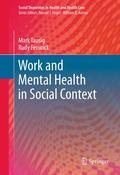
Anyone who has ever had a job has probably experienced work-related stress atsome point or another. For many workers, however, job-related stress is experienced every day and reaches more extreme levels. Four in ten American workerssay that their jobs are “very” or “extremely” stressful. Job stress is recognized as an epidemic in the workplace, and its economic and health care costsare staggering: by some estimates over $ 1 billion per year in lost productivity, absenteeism and worker turnover, and at least that much in treating its health effects, ranging from anxiety and psychological depression to cardiovascular disease and hypertension. Why are so many American workers so stressed out by their jobs? Many psychologists say stress is the result of a mismatch between the characteristics of a job and the personality of the worker. Many management consultants propose reducing stress by “redesigning” jobs and developing better individual strategies for “coping” with their stress. But, these explanations are not the whole story. They don’t explain why some jobs and some occupations are more stressful than other jobs and occupations, regardless of the personalities and “coping strategies” of individual workers. Why do auto assembly line workers and air traffic controllers report more job stress than university professors, self-employed business owners, or corporate managers (yes, managers!)? . The authors of Work and Mental Health in Social Context take adifferent approach to understanding the causes of job stress. Job stress is systematically created by the characteristics of the jobs themselves: by the workers’ occupation, the organizations in which they work, their placements in different labor markets, and by broader social, economic and institutional structures, processes and events. And disparities in job stress are systematicallydetermined in much the same way as are other disparities in health, income, and mobility opportunities. In taking this approach, the authors draw on the observations and insights from a diverse field of sociological and economic theories and research. These go back to the nineteenth century writings of Marx, Weber and Durkheim on the relationship between work and well-being. They also include the more contemporary work in organizational sociology, structural labor market research from sociology and economics, research on unemployment and economic cycles, and research on institutional environments. This has allowed the authors to develop a unified framework that extends sociological models of income inequality and “status” attainment (or allocation) to the explanation of non-economic, health-related outcomes of work. Using a multi-level structural model, this timely and comprehensive volume explores what is stressful aboutwork, and why; specifically address these and questions and more:. -What characteristics of jobs are the most stressful; what characteristics reduce stress?. -Why do work organiza combines nineteenth century writings on connection between work and well being with contemporary views on organizational sociology and institutional environments. develops a unified framework that extends sociological models of income inequality and “status” attainment to the explanation of non-economic, health-related outcomes of work. uses the sociological theory and research on the economic outcomes of work (i.e., wages and benefits) to suggest a way to think about the non-economic outcomes of work (i.e., stress and well-being). INDICE: Preface.-Introduction: Job Stress and Where it Comes From.-Chapter2. Job Structures, Job Stress and Mental Health.-Chapter 3. Organizational Determinants of Job Stressors. Chapter 4. Occupational Determinants of Job Stress: Socioeconomic Status and Segmented Labor Markets.-Chapter 5. Macroeconomic Change, Unemployment and Job Stress. Chapter 6. Institutional Factors.-Chapter7. Work and Mental Health in Social Context.
- ISBN: 978-1-4614-0624-2
- Editorial: Springer New York
- Encuadernacion: Cartoné
- Páginas: 190
- Fecha Publicación: 10/10/2011
- Nº Volúmenes: 1
- Idioma: Inglés
